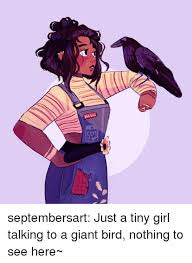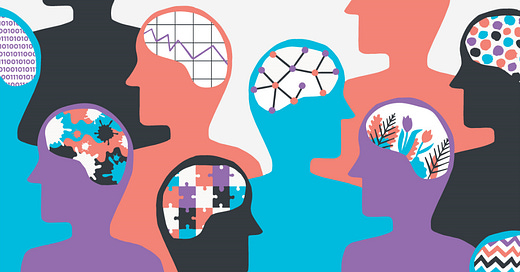I am an EXTREME extrovert. Because I work in education, and no one cares enough to do actual professional development and growth with educators, I’ve never taken the Meyers-Briggs test. But I’m pretty sure my “type” would be classified as “needs-interaction-at-all-time-even-starts-conversations-with-hostile-appearing-strangers-and-birds." Once my also friendly and talkative siblings told me that, among the five of us, every one of them would pick me last in a silent meditation retreat participant draft. You know, those.

My extroversion has served me well. I am a great host (I am already fantasizing about the kickass party I’m gonna have in 1-12 months). I always speak up in class. I can give impromptu speeches about a wide range of topics, so long as I have a crowd of listeners to energize me.
I have always felt sorry for introverts. My students who are introverts have struggled. They have trouble working in groups, showing their teachers they are engaged, sometimes building relationships. I never questioned that it is not just easier, but better to be an extrovert than an introvert.
Until this week.
I was first introduced to the idea of neurodiversity (though I never heard that word back then) as a first-year special education teacher. Up until then, I had always just accepted that there are good ways to think and learn and bad ways to think and learn. It was better to be able to read than not to be able to read. It was better to not be autistic than to be autistic. The social shifts of the 90’s meant that we no longer blamed people for their “disabilities” (at least not out in the open), and we believed that the world could accommodate them with enough compassion (pity) and optimism (heroicizing). But we still knew that it was a superior thing to be “normal.”

Then I heard the phrase “All Kinds of Minds.” I learned about the concept that there are many, many things our brains can do, and everyone has some things their brains do easily and some that take more work. I learned about how learning to read is really an unnatural thing for our brains to do, how ADHD rates in children are much higher in states that were early adapters of high-stakes standardized testing. I read about the
”Cultural Work” of learning disabilities, and how this work relates to other forms of oppression and discrimination.
“The labels are not so much facts about specific children as they are mirrors to what happens in classrooms run by the survival-of-the-show-off-smartest logic of American education.” - McDermott, Goldman, and Varenne
I started to think about how different environments (classrooms, homes, the inane organization of a Safeway grocery store) CREATE disability for different minds.
Which brings me to today.
What kind of mind thrives during quarantine? I’ll tell you, it’s not the one that needs a crowd to feel worthwhile. I’m wondering if, in fact, it’s the mind that gets immense pleasure out of solo pursuits. The mind that feels more comfortable interacting online. That likes quiet. That can parse facts without developing anxiety. Or the mind that has had to cope with anxiety its whole life and thus has some tools in the ol’ toolbox already.
This moment is a reminder that there is no good way to be and no bad way to be. There are only ways of being that are better or worse matches for certain situations.
What about your mind can lend itself well to this unexpected moment?
What can you appreciate about the different minds in your life and the unexpected gifts they may be bringing to this lonely, wobbly, table?
Want to come back to a world that is less interested in pathologizing and more interested neurodiversity?
Listen to Neurotribes author Steve Silberman be the coolest (G-rated version on NPR, R-rated version on Harmontown)
Read queer, autistic, awesome, scholar Nick Walker’s blog
Buy Jenara Nerenberg’s book Divergent Mind, about neurodiversity and women (independent book stores are delivering!)
Talk to your friends and family about the places their brains thrive
It’ll take all kinds to get through this one, friends :)





wow this article really makes me wish you were my therapist. I am super dyslexic. I usually spell dyslexic wrong. I worry that Teo will be. Everything you have written here I want engraved into my brain. So it is second nature for me to know that it is not a "superior thing to be “normal.”" So that I don't leak my baggage and biases I don't even fucking believe onto my kid. One thing I am grateful for in this moment of time is that I am getting to know him a little better. Seeing how his wild creative active brain works. Sometime I would love to pick your brain about all of this. thank you for your posts. I have a treadmill in my garage so I read them and cry. (Alternative to crying in a car or bathroom)